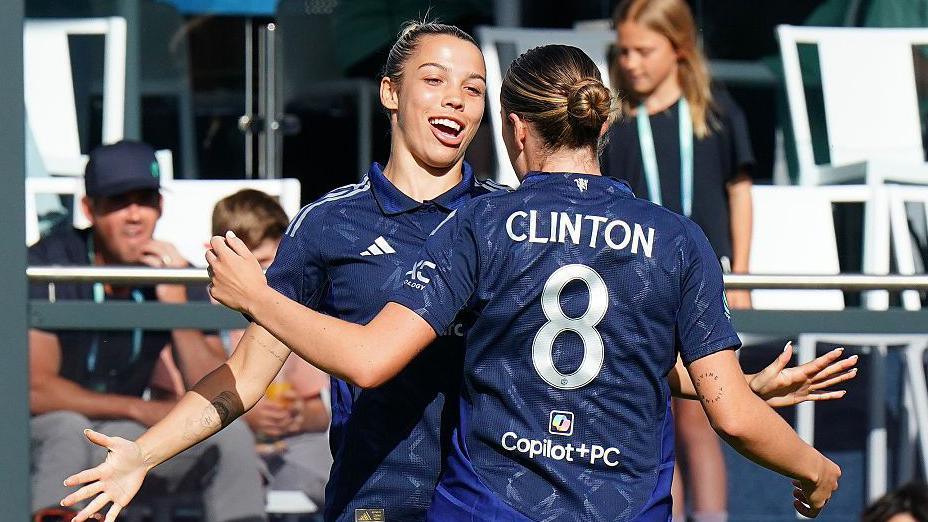The inaugural Women’s World Sevens was launched in Estoril, Portugal, and it marks a significant moment for women’s football. The event began with a spectacular atmosphere, showcasing various engaging elements such as smoke cannons erupting behind the goals, lively DJ music accompanying the game highlights, and enthusiastic shirt giveaways for the attending fans. Unlike the standard football matches that European female athletes typically experience, this celebration of the sport aimed to inject a sense of vibrancy and excitement into the game.
Manchester United manager Marc Skinner captured the energy of the opening event by describing it as “carnage” and “chaos” following his team’s thrilling 3-2 victory over AS Roma. The tournament features eight participating clubs, including renowned teams like Manchester United and Manchester City, elevating competition within a unique seven-a-side format. This setup is not only captivating but also introduces a substantial prize pool of $5 million (£3.76 million), which exceeds the prize money offered to Women’s Champions League victors later that week in Lisbon.
The ‘sevens’ format incorporates rolling substitutes, the absence of offsides, and shorter 15-minute halves, elements designed to foster creativity, flair, and attacking play. Manchester City’s Jess Park showcased her skills by pulling off an impressive nutmeg, earning her team a corner in an opening match that saw City triumph over Rosengard 4-0. Meanwhile, the excitement reached new heights when Manchester United’s Celin Bizet and Grace Clinton celebrated a stunning goal with exuberance, drawing cheers from the 200-strong crowd.
As Bayern Munich prepared for their own matchup against Ajax, the atmosphere continued to pulsate with energy, highlighted by Norwegian defender Tuva Hansen’s jubilant goal celebration reminiscent of Chloe Kelly. United’s Clinton expressed her delight in competing in a format that felt more liberated: “I think the Roma players took it a bit more seriously than us! We had loads of fun,” she reflected on the day.
Fans’ reactions to the event were initially tepid, with attendance picking up as the evening progressed. Commentary from supporters like Manchester City fan Leanne Woodall framed the ambiance as fresh and exciting, complemented by the stadium’s transformation, while Charlotte Wilkins shared her anticipation for witnessing professional players engage in seven-a-side tactics. Many fans and players alike echoed throughout the night the desire to embrace this innovative blend of traditional sport with festival-like attributes.
The location of the matches, the Estadio Antonio Coimbra da Mota, also contributed significantly to the experience. The ground was redesigned for the tournament, enhancing the visual appeal and ultimately elevating the spectator experience. This redevelopment involved adding stands and large screens to accommodate fans and media alike.
Amidst the celebratory atmosphere, however, there exists controversy regarding the tournament’s timing, particularly with Euro 2025 approaching. Clubs like Rosengard faced criticism for participation during a busy season. Despite this, they seized the opportunity to showcase Swedish football, with midfielder Emelia Larsson noting the enjoyment of participating despite impacting their training schedules.
Manchester City’s interim manager Nick Cushing emphasized the tournament’s alignment with their philosophy of playing an attractive style of football, with players expressing eagerness to display their skills. Notably, Brazilian forward Kerolin captured the essence of the tournament perfectly by stating, “I like the ginga,” referring to a flair that embodies Brazilian creativity in football.
Overall, the Women’s World Sevens has fostered an environment where players can express themselves in a manner reminiscent of their childhood experiences, linking the enjoyment of the game with serious competition. As the tournament progresses toward its conclusion with semi-finals and finals later in the week, anticipation continues to build among fans and players alike, particularly with many looking ahead to the Champions League final, signifying a promising future for women’s football.



